Q. Last week in Buffalo, you had two kickers active on game day. How did you come to that decision?
A. We needed to do whatever was required for us to win the game. If we were going to be over-cautious and protected at that position, it was worth it. We needed to get a winning performance. We didn't care by what means that happened. We just exercised a little extra caution and had a little depth at that position to deal with the unforeseen.
Q. There are 46 guys active on game days, and so you were looking at playing with 44, because you were carrying a backup quarterback and a backup kicker. Was that tough to do?
A. It is a decision that requires contemplation, but if you look at the stats sheets week in and week out, just about 50 percent of NFL teams have more than two guys who are non-participants in the game. So in that vein, why not have one of them be a kicker to insulate ourselves against the unforeseen.
Q. Did you have to talk yourself into that?
A. No, I really didn't. I really had that mentality all week. More than anything it was about talking myself out of that position.
Q. Do you have backup options in mind in the event of an in-game injury to a specialist?
A. I do, but none of them are pretty, and that's why it justified the approach we took last week.
Q. Do those guys know they're the options?
A. They know, but none of us talk about it.
**
Q. I was told recently by someone that Le'Veon Bell never gets tired. Would you agree with that?**
A. Not in my presence. He's a highly-conditioned guy. He takes pride in it. We have GPS equipment that measures output and workloads at practice on a day-to-day basis, and he's one of the chief guys who's always challenging himself, wants to know what his output is, wants to always outwork everyone else. And he's got youth on his side, so it aids him in achieving his agenda.
Q. From your perspective as a head coach, how have training methods changed for these elite athletes over the last decade or more?
A. There are no lulls over the course of a 12-month calendar in terms of their conditioning and their work-readiness, and I think that aids them in not only getting to but also maintaining an optimum level of conditioning and readiness. These guys are highly-conditioned over a 12-month calendar now. There is no off time, no down time, no selling real estate in the offseasons anymore. These guys are committed, and not only in what they do but also in what they put into their bodies. How they eat. Most guys have nutritionists and are very conscious about what they put into their body not only in-season but also out-of-season. The work that goes in out-of-season and the information that's shared during that time of the year is what has changed a lot of the levels of conditioning.
Q. Artie Burns got his third interception of the season against the Giants, and it looked like he was going for his fourth on the play that ended up being a 40-yard touchdown pass to Charles Clay. Do you coach going for the ball all the time, or are there situations where that's not the preferred approach?
A. I want him to do what comes natural. When you ask guys to do what doesn't come natural, that's when you're not going to get what you're looking for. By that I mean, some guys are naturally ball guys. They're natural instinct is to play the ball. Some guys' natural instincts are to play through the man, and the ball is somewhat secondary to him. I always analyze that through the draft process or the evaluation process if it's free agency. I know what these guys are, and I always ask them to be themselves. Where you get into trouble is when you ask a guy to do an unnatural act. If a guy is naturally a ball guy and you ask him to play through the man, that's when you're going to get an unnatural looking thing. Artie has always been a ball guy. He had six interceptions last year in college at Miami, and I'm always going to ask him to do what comes natural.
**
Here is a look at the statistical leaders for both the Steelers and Bengals heading into Sunday's game at Paul Brown Stadium.

QB Ben Roethlisberger has completed 283 of 440 passes (64.3%) for 3,254 yards. Roethlisberger has thrown 25 touchdowns and 11 interceptions for a quarterback rating of 95.

QB Andy Dalton has completed 302 of 467 passes (64.7%) for 3,555 yards. Dalton has thrown 16 touchdowns and 6 interceptions for a quarterback rating of 93.8.
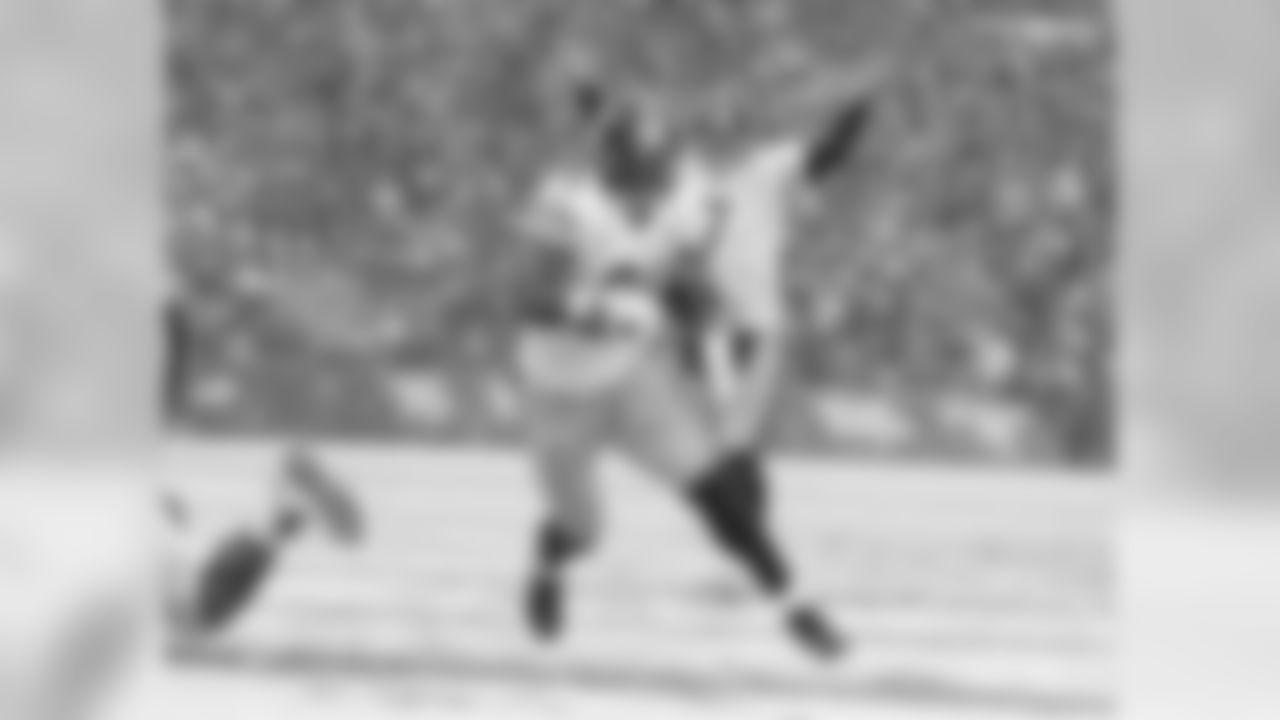
RB Le'Veon Bell leads the rushing attack with 1,053 yards on 218 carries and has 6 rushing touchdowns. In addition, Bell has 67 receptions for 563 receiving yards and has 1 receiving touchdown.
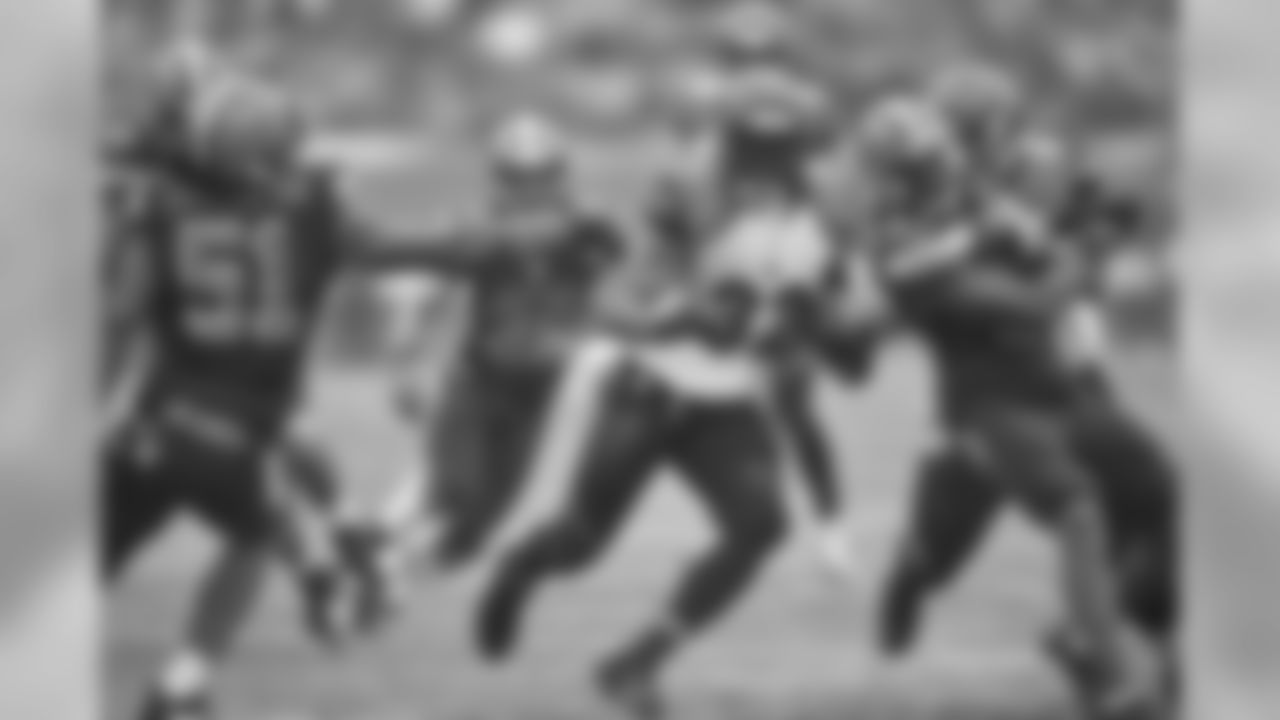
HB Jeremy Hill leads the Bengals rushing attack with 788 yards on 195 carries and has rushed for 8 touchdowns.
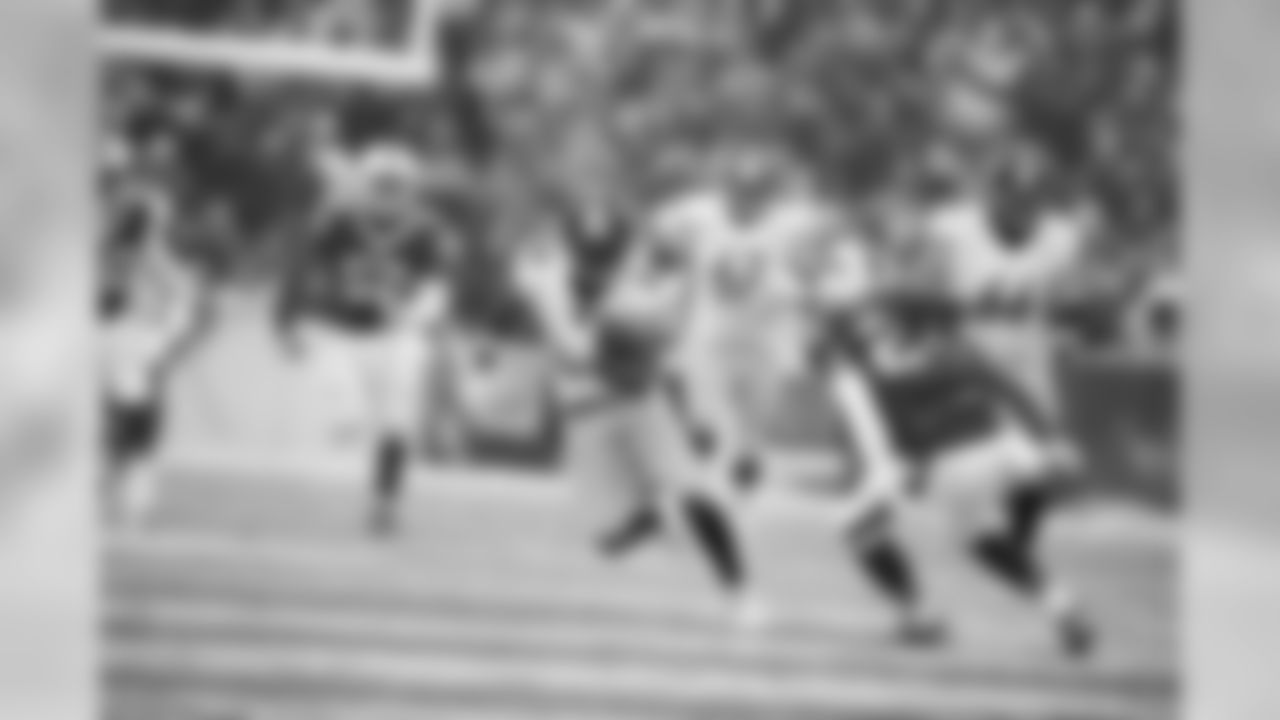
WR Antonio Brown has a team-high 93 receptions for a team-high 1,130 receiving yards and has 11 receiving touchdowns.
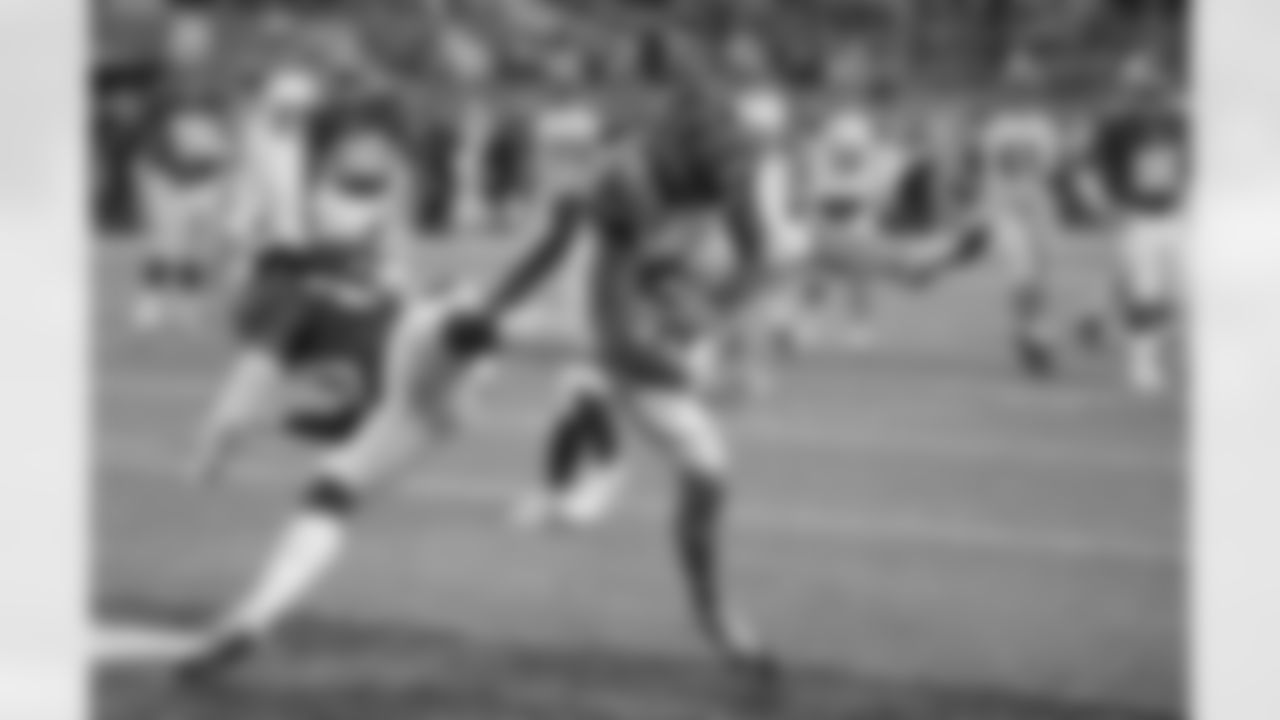
WR A.J. Green has a team-high 66 receptions for a team-high 964 receiving yards. Green has hauled in 4 receiving touchdowns for the Bengals offense.
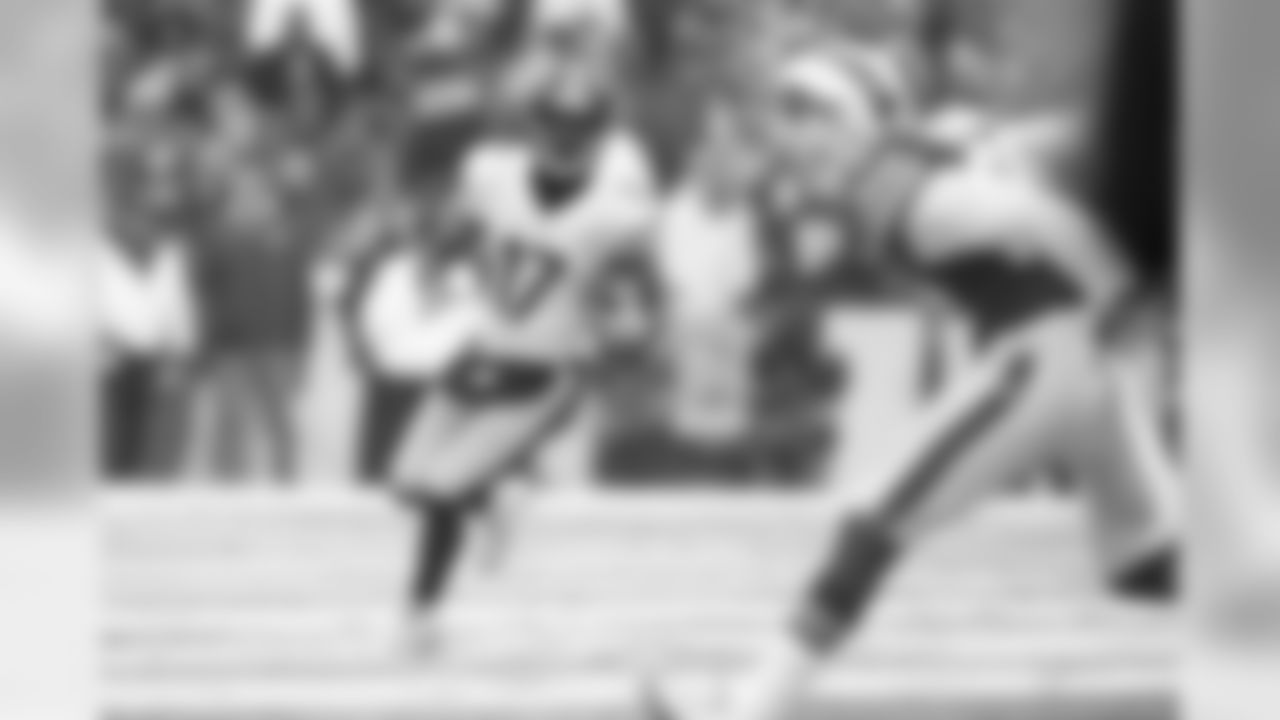
WR Eli Rogers has 33 receptions for 374 yards and has hauled in 2 receiving touchdowns for the Steelers offense.
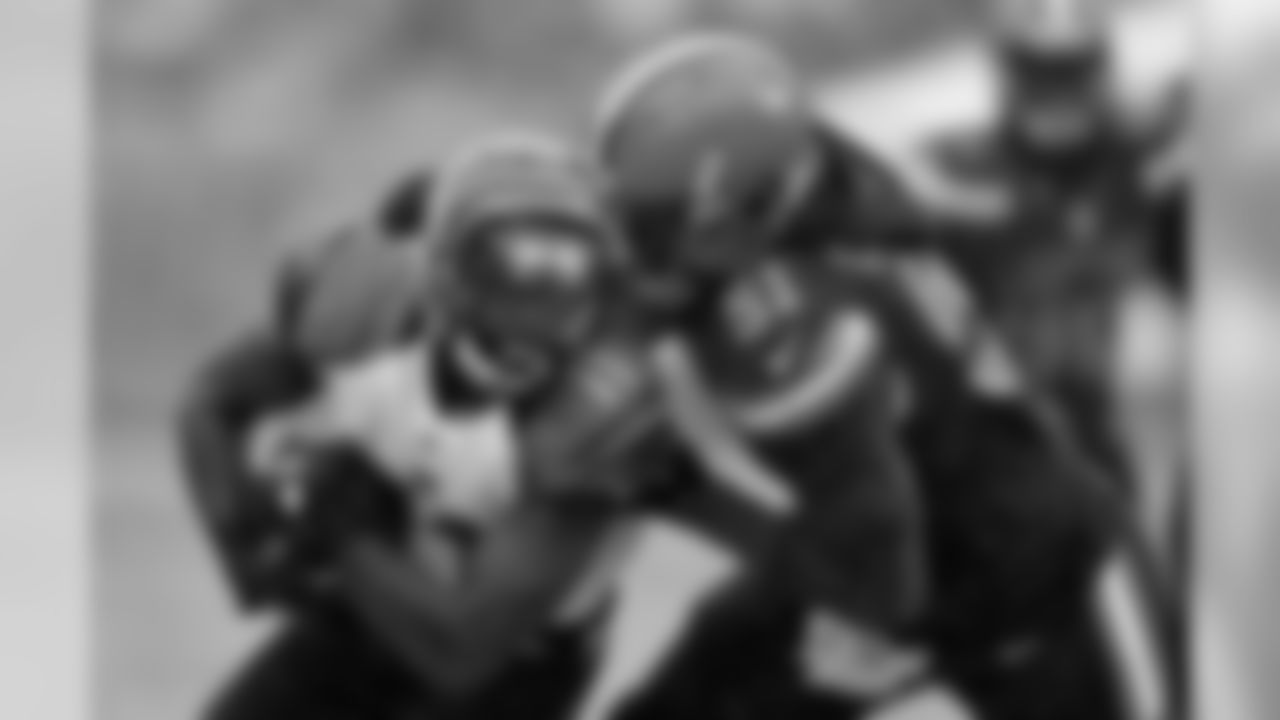
WR Brandon LaFell has 44 receptions for 574 receiving yards and has 5 receiving touchdowns for the Bengals offense.
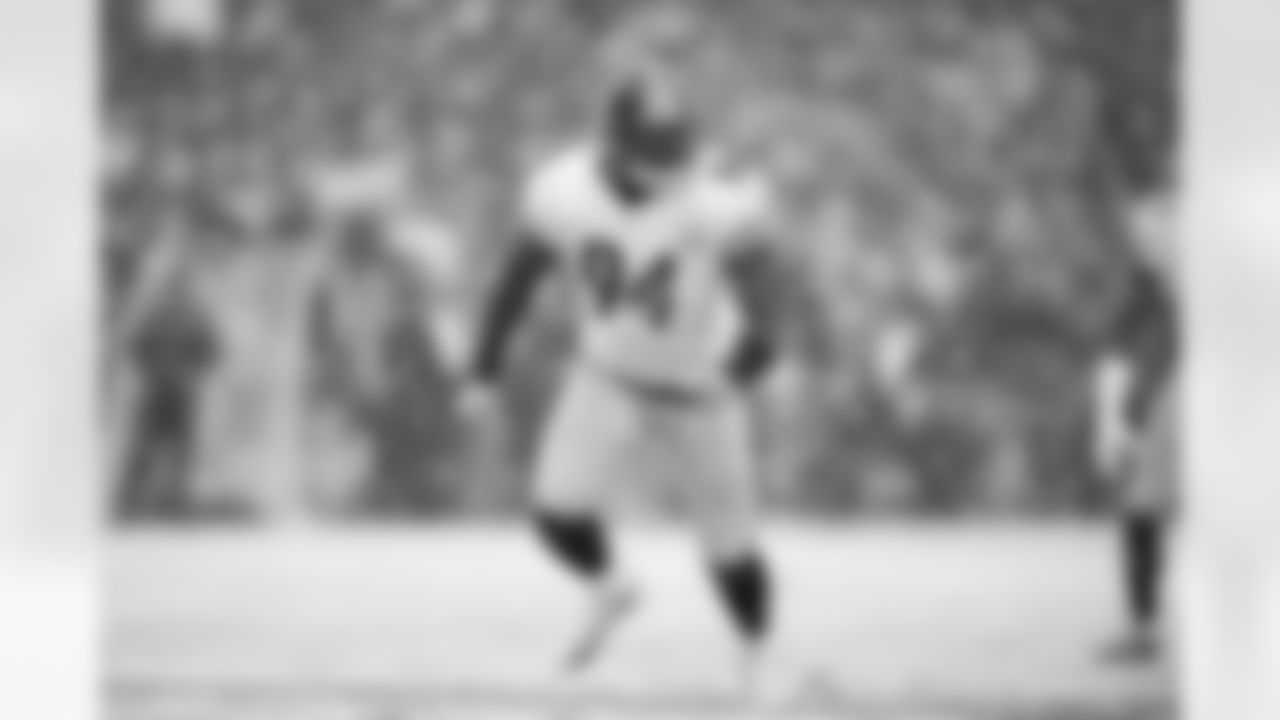
LB Lawrence Timmons leads the Steelers defense with a team-high 90 total tackles (60 solo and 30 assists), has 1.5 sacks and 1 interception.

LB Vontaze Burfict leads the Bengals defense with 92 total tackles (71 solo and 21 assists). Burfict has also recorded 2 sacks and 1 fumble.
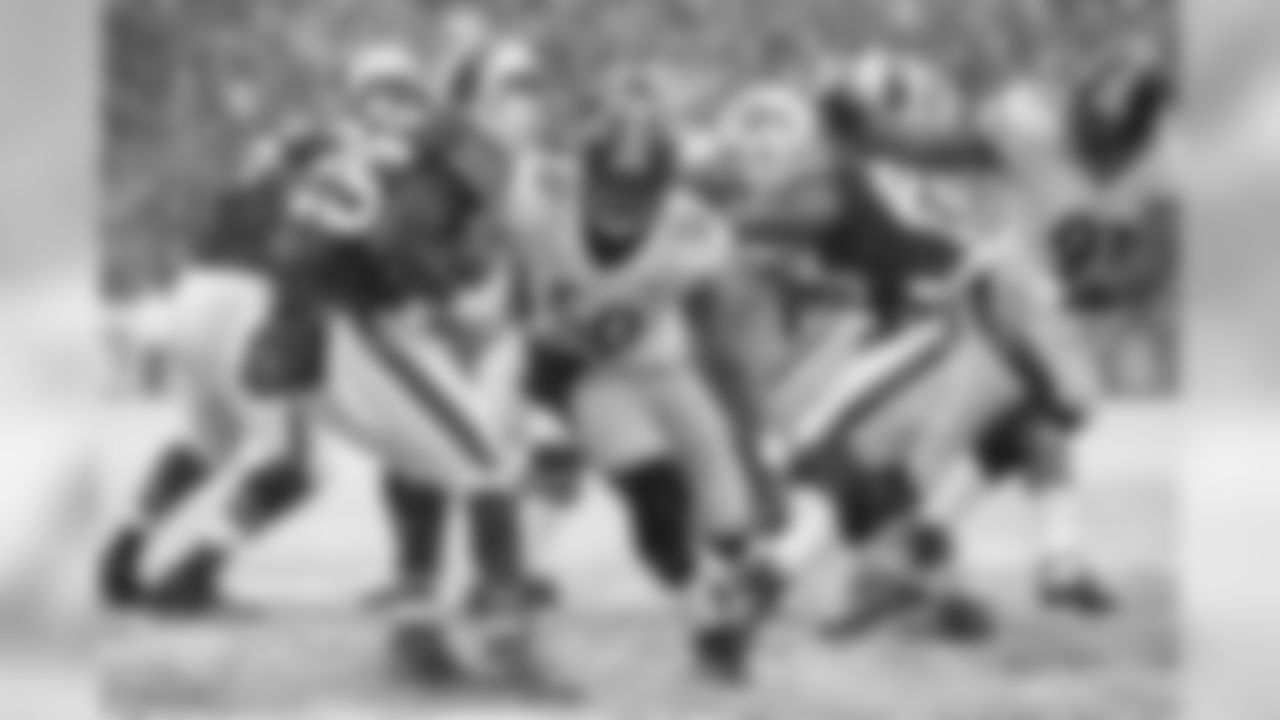
LB Ryan Shazier has 64 total tackles (40 solo and 24 assists), 3 fumbles, 2.5 sacks and 1 interception.
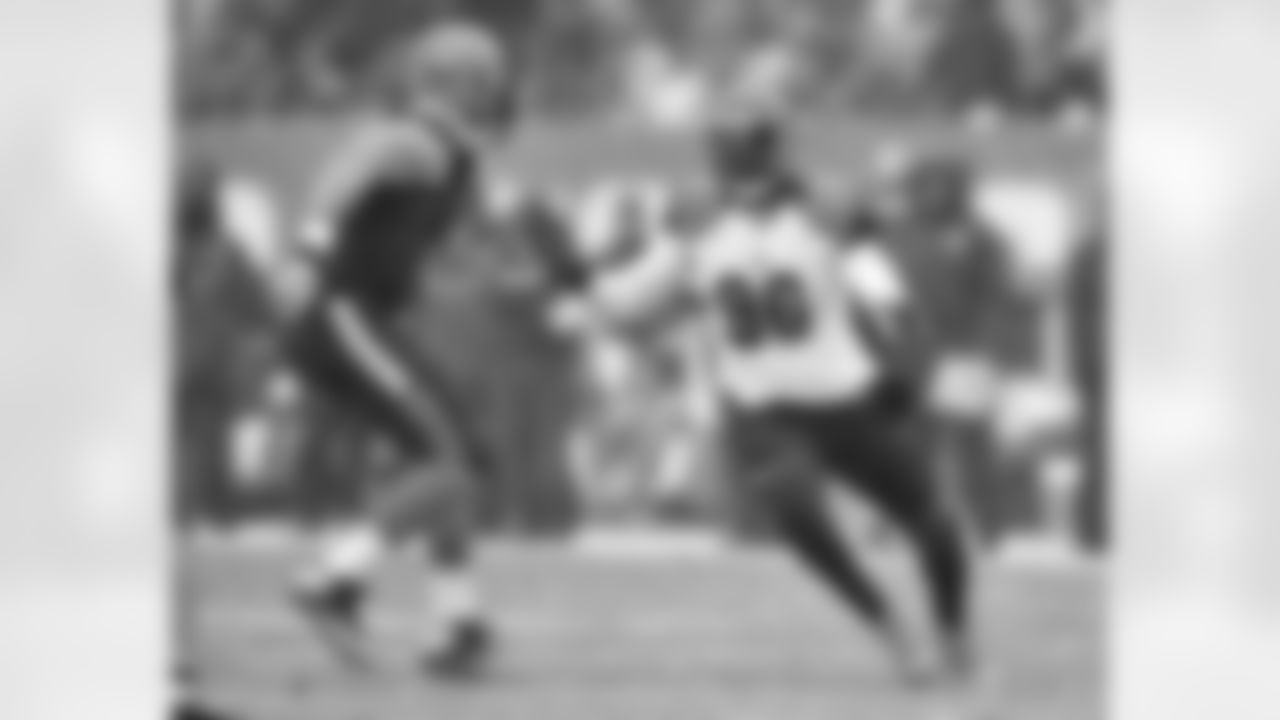
DE Carlos Dunlap has 40 total tackles (25 solo and 15 assists) and leads the defense with 7 sacks and 2 fumbles.
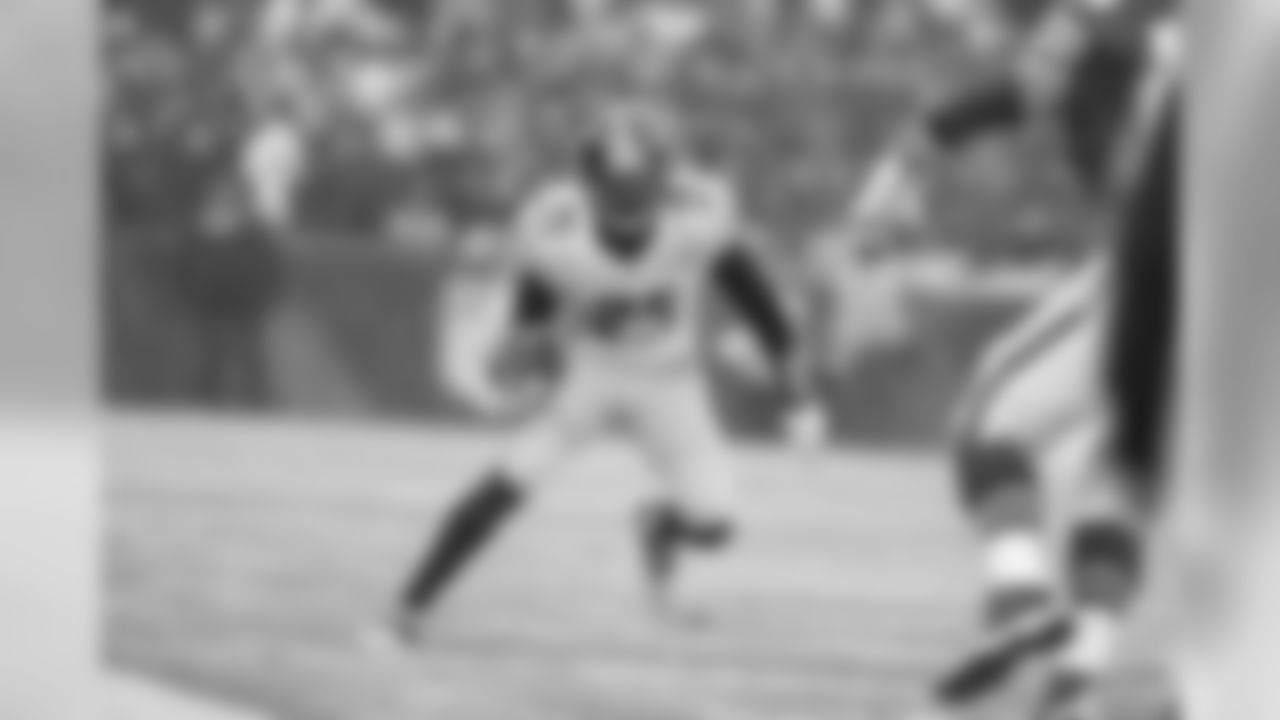
CB Artie Burns leads the Steelers defense with 3 interceptions and has 47 total tackles (40 solo and 7 assists).

S George Iloka leads the Bengals defense with 3 interceptions and has 56 total tackles (40 solo and 16 assists).
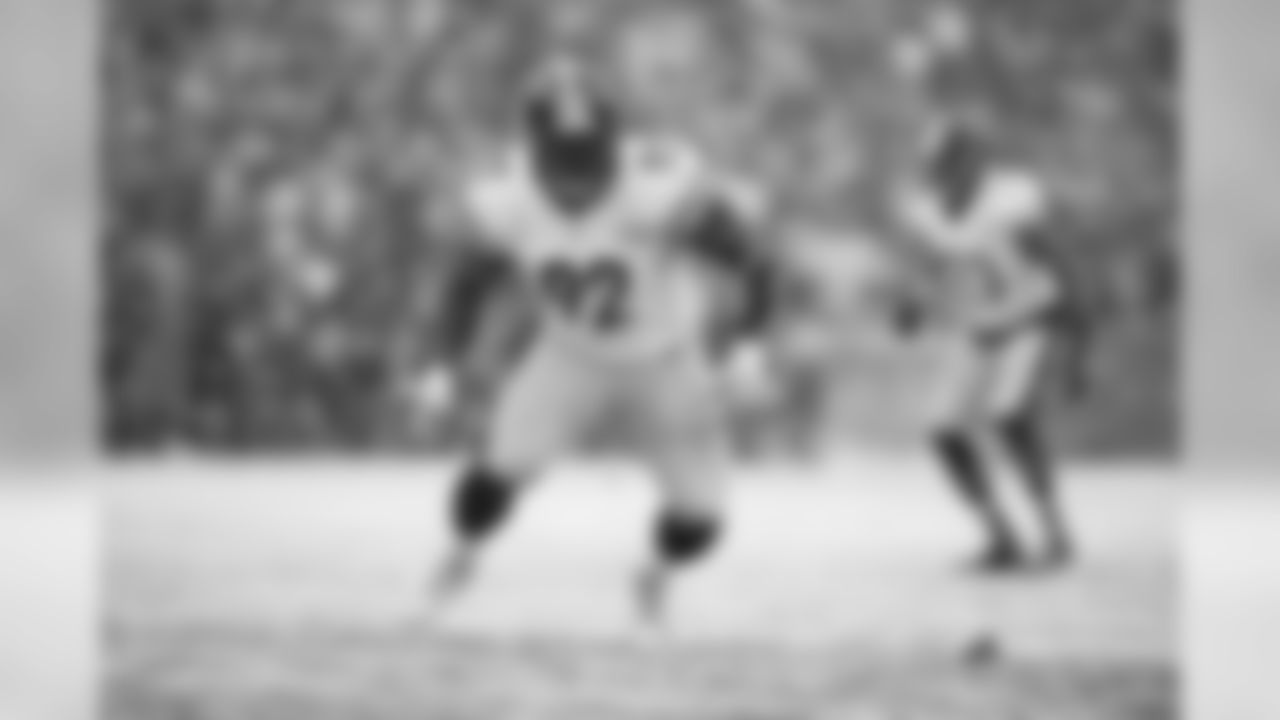
LB James Harrison leads the Steelers defense with 5 sacks and has recorded 33 total tackles (26 solo and 7 assists).
Q. The team is in a situation where if it wins its next two games – today against the Bengals and then on Christmas Day against the Ravens – you clinch the AFC North Division. Can you use the simplicity of that to your advantage within the preparation process?**
A. I feel like I've been using it for the last four weeks. Our approach doesn't change just because one of our many goals is getting closer. We've been in that mentality now since we walked off the field against the Dallas Cowboys. We're saying similar things that we've said in recent weeks because they're true. As long as we take care of business in our stadium, we don't have to look around. Our position can get no worse, it can only get better. And we can move closer to our targets. That's the way it's been, and that's the way it needs to continue to be. We're going to focus on our business in this stadium and tune out the rest.
Q. Generally speaking, is the second game of a home-and-home easier or tougher to win if you've won the first one?
A. I don't have the answer to that. I really don't quantify it in that way. I'm one who is a believer in that every time you roll the ball out a game can unfold in a different manner even with the same opponents. So I respect the preparation process and then I go into the stadium ready to put the best foot forward and understanding that anybody is capable of beating us and we're capable of beating anybody that's on our schedule, and it can unfold very differently with the same two teams every time you play.
Q. Revenge games. Is revenge a real motivating factor in the NFL, or is that all just talk?
A. It's a big factor until right about the time the locker room doors burst open, and then you have to make plays. Football always has been about a guy being where he's supposed to be doing what he's supposed to do. And it always will be. It's about the play-making. The revenge and the things associated with emotion, they're not long-lasting. Usually the minute when the rubber meets the road, those things are secondary.
Q. If I'm a dirty player, what am I doing to have that reputation?
A. You're not making a conscious effort to adhere to the rules of the game. Specifically if you're talking about dirty, you're not adhering to the rules of the game that are based on the safety of others. Player safety is a big initiative in this game. The players themselves are all in one big fraternity, and there's a responsibility to safeguard not only yourself but each other. It's called being a professional. And when you make a conscious decision not to adhere to the rules of the game – particularly in that regard – you open yourself up to potential criticism. And being dirty is one of them.
Q. How many truly dirty players are there in the NFL?
A. To be honest with you, I don't know because I don't spend a lot of time thinking about it. I just make sure the guys on our football team work extremely hard to play within the rules of the game. It's a tough thing to analyze where someone's heart is and what someone's intentions are. As a matter of fact, we talk openly when we talk about rules that we don't evaluate intent. That's why the rules are so black-and-white regarding certain penalties. You can get penalized 15 yards for a facemask, and it could be unintentional, but the result is the same if the penalty is very intentional. That being said, you don't know what's in someone's head or heart, but in my mind you asked the question, so it's the spirit of the rule or the spirit in which people play that defines whether you categorize him as dirty or not.
Q. Is A.J. Green the caliber of a player who would change the way you play defense today based on whether he's on the field or not?
A. He is.
Q. How many non-quarterbacks deserve to be viewed in that way?
A. There is probably one per month. Probably four guys or so where you have to acknowledge where they are. It may dictate how you approach play. It definitely will affect how you approach play situationally – third down, red zone, things of that nature. Before A.J. today, the most recent example of a guy like this is Odell Beckham Jr. of the Giants.
Q. Who's the best player on the Bengals' defense?
A. Vontaze Burfict. He's an impactful guy in all situations. You just take the last time he played against us. He had a quarterback sack. He had a big-time interception. He makes plays in the run game. He makes plays in the passing game. He makes plays in the backfield. He makes plays downfield. He's one of those second-level-all-situations defenders, and it's tough to minimize their impact on the game. But I imagine they say similar things about Ryan Shazier.
Q. What kind of game do you expect today?
A. Hopefully, a tough, consistent, disciplined one from us. But we only control part of that. We understand we're in a hostile environment vs. a team that's fighting to stay alive. We respect that, but we have an agenda of our own, and so we're going to stay focused on ours.














